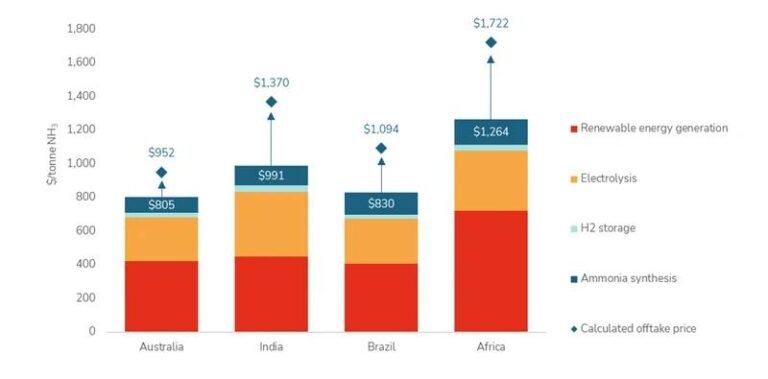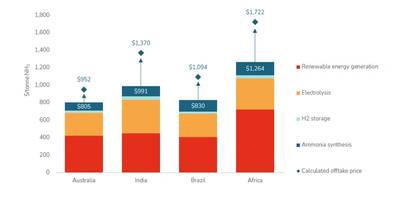Potential Challenges in Funding E-Fuel Production in Developing Countries
A recent study by UMAS and UCL Energy Institute Shipping and Oceans Research Group sheds light on the financial obstacles that developing countries face in producing e-fuels, particularly e-ammonia, as a low-emission shipping fuel.
The report, titled “The Cost of Capital Challenge in Delivering a Just and Equitable Transition for Shipping,” highlights how poor access to funding and higher capital costs in countries like Australia, Brazil, India, and African nations can significantly impact the prices of e-fuels they generate, even with abundant renewable resources.
Key Findings
According to the study, renewable projects in Brazil, India, and Africa encounter higher funding costs and limited financial resources compared to developed nations like Australia. This disparity in capital costs can hinder the overall cost-effectiveness of renewable energy projects in these regions.
By analyzing the production process of e-ammonia, the study demonstrates that projects in African countries may require offtake prices up to 80% higher than those in Australia due to funding constraints. This discrepancy poses a significant challenge to achieving a fair and inclusive transition in the shipping industry, as envisioned by the International Maritime Organization (IMO).
Recommendations
In light of these findings, the report suggests implementing targeted financial support mechanisms to level the playing field for e-fuel production in developing countries. One proposed solution is to allocate a portion of IMO funds to provide grants and concessional finance, helping offset the higher financing costs in low-income nations.
Without such interventions, there is a risk that e-fuel production will disproportionately favor already-advantaged economies, potentially leaving developing nations with untapped renewable potential behind.


